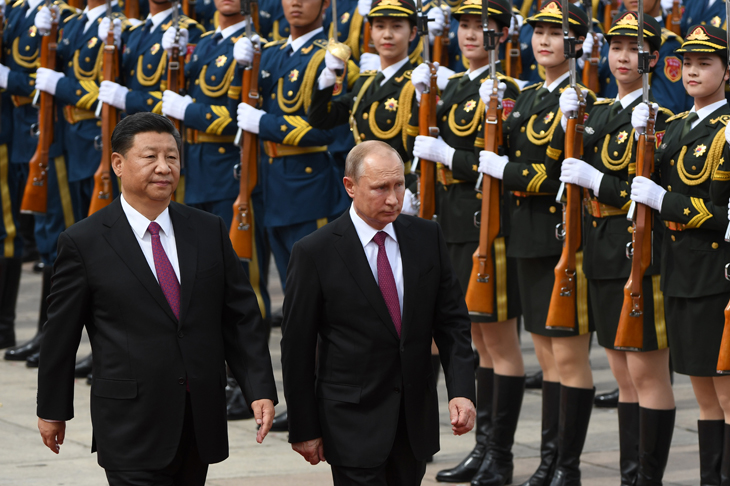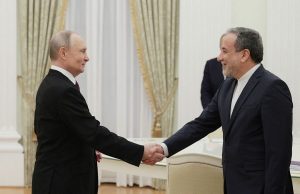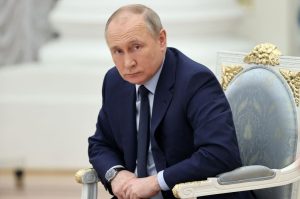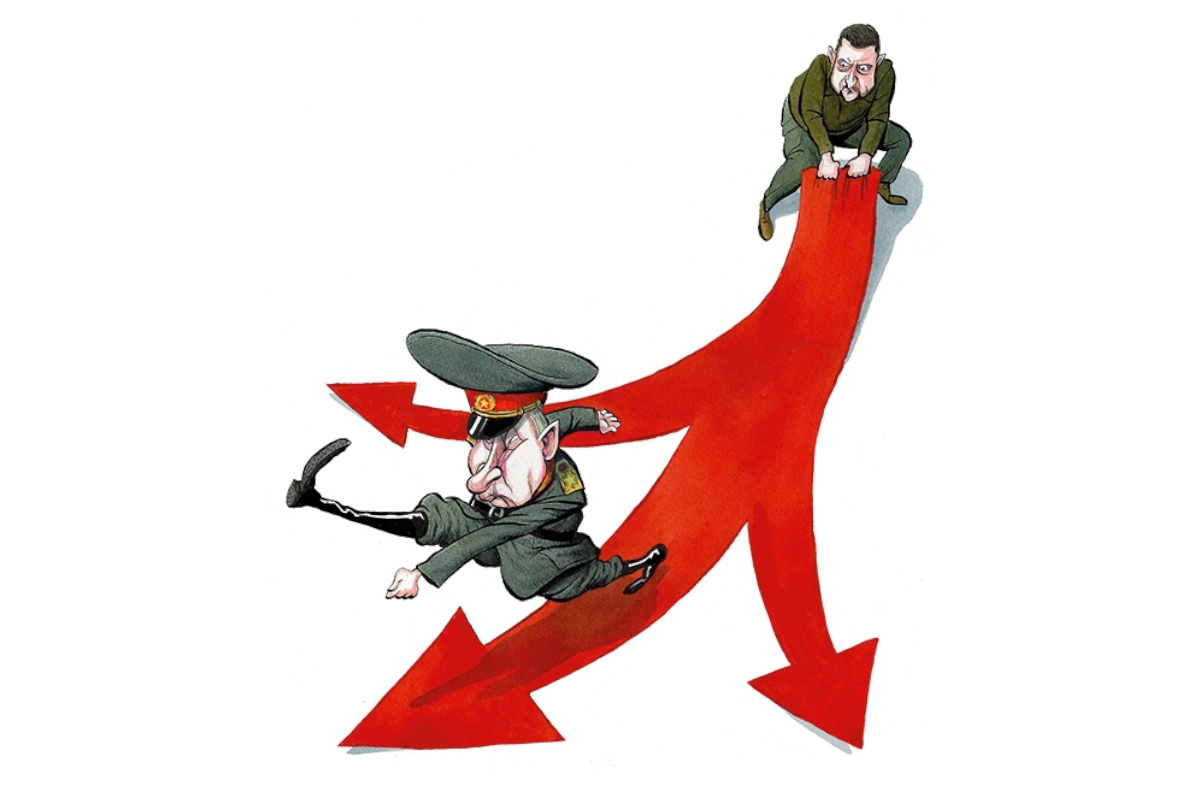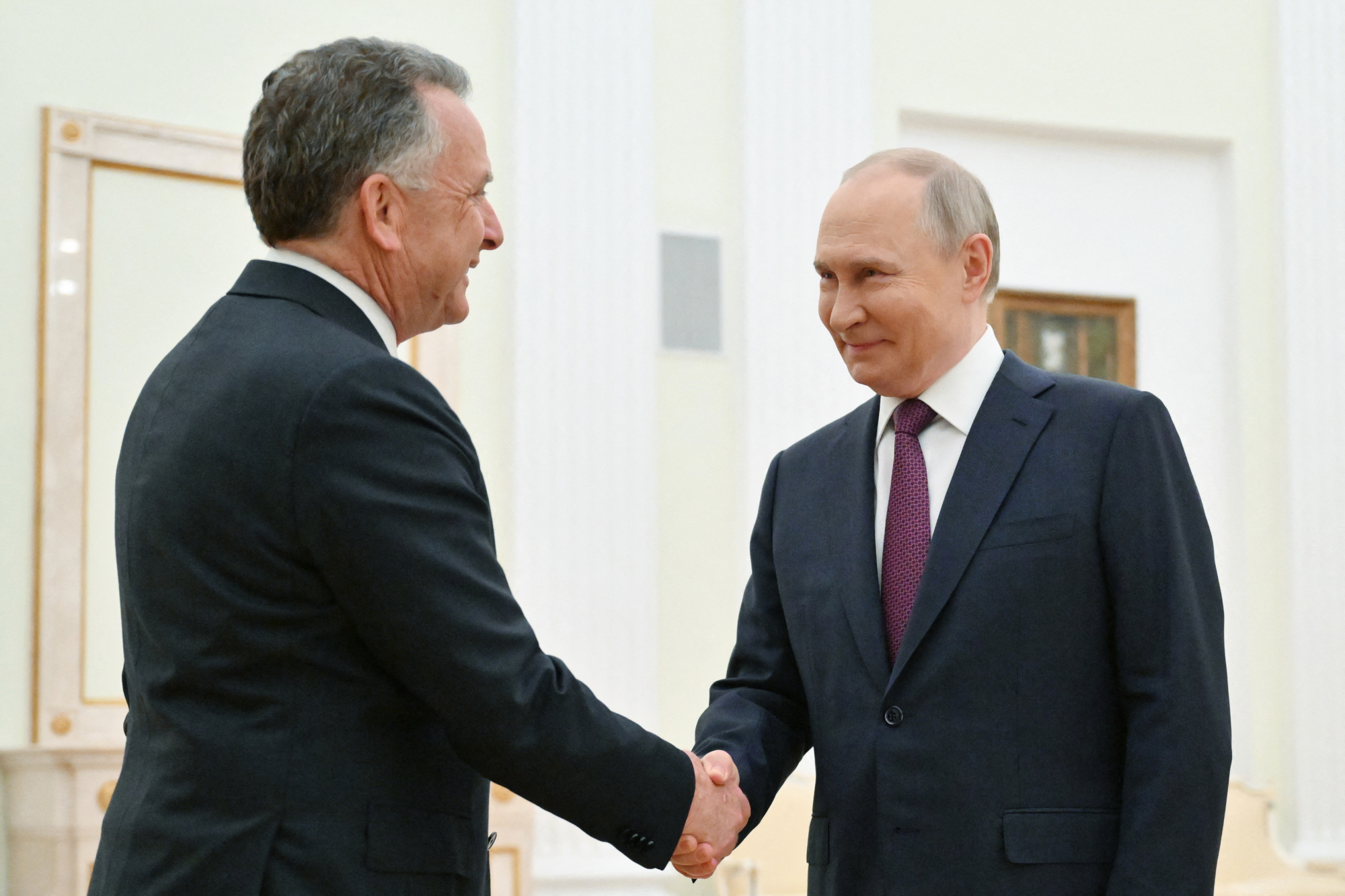At the height of the Cold War, as the West faced off against Red China and the Soviet Union, people used to joke that optimists learnt Russian while pessimists learnt Chinese. Today, the debate about which of these two great powers represents the biggest threat to our way of life is once again in full swing — though with new battle lines. And it’s not clear that Britain knows what to make of it all.
For some commentators, the main challenge still comes from Vladimir Putin’s resurgent Russia. Those who once scoffed at Mitt Romney’s 2012 claim that Russia was the principal enemy of the United States now need no persuading that Moscow wants to unravel the post-Cold War international order. The Salisbury poisoning was just the latest reminder.
Others look towards China, which last week opened another geopolitical front by completing its robotic mission to the far side of the moon. With Beijing flexing its scientific and financial muscle in support of its space firms, it’s not inconceivable that the country could rapidly catch up with the West in its use of satellites and rockets, perhaps even claiming the frontier in quantum communications and resource exploitation in space.
Back on Earth, China hawks — like Vice President Mike Pence — lambast the rising power for its unfair trade practices, shameless espionage, hunger for resources and military assertiveness. Pence also claims that China is trying to strike at the heart of the foundational institutions of western democracy. Elections, the free press and civil society are all targets as China seeks to secure its global dominance.
So who’s right? There is no doubt that Russia represents a colossal threat to the West, and in particular to Europe. As the Skripal case showed, Moscow is intent on undermining countries like Britain. Russia’s annexation of the Crimea and its incursions into Eastern Ukraine were the first instances of territorial aggression since the end of the second world war. That’s not to mention its extensive interference in foreign elections, with the Kremlin supporting separatists and troublemakers across Europe.
But the idea of a potential Russia threat is also easily understood in Britain: we remember all that from the Cold War. The concept of China being a threat is harder to comprehend. In what way? Yes, its hacking and intellectual property theft is a headache. But is it worse than what Russia is up to? And don’t we need Chinese investment, so does it really matter if China builds our 5G mobile networks? In London, ministers agonize over these issues — not knowing whether to pity China (we still send foreign aid there), beg for its money and contracts (with prime ministerial trade trips), or treat it as a potential antagonist.
The truth is that Mike Pence had it right when he said that China constitutes an even greater long-term challenge to the West than Russia. Consider, for example, how busily it has been probing for weakness in western defenses. Adapting the Maoist guerrilla warfare strategy to geopolitics, China has sought to neutralize the West’s advantages by developing foreign policy and military doctrines, international organizations, specialist military, intelligence and cyber-warfare skills, and overseas propaganda capabilities that enable Beijing to exert huge influence well beyond its near abroad and within the key institutions of the rules-based order (the United Nations and WTO, for example).
To understand Beijing’s ambitions, look at the Belt and Road Initiative, a state-led plan to reshape global trade and capital flows in China’s self-image as the Middle Kingdom emanating extensive soft power. As the scheme expands across several continents, projecting Chinese military power as it goes, it locks weak states in Asia and Africa into financial and political arrangements that impose serious risks of unsustainable, market–distorting underdevelopment.
Yet Beijing has been the beneficiary of liberal revulsion at the Trump presidency: if the Donald is against the Chinese, who cannot be for them? As a result, Trump’s efforts to address China’s unfair trade practices have so far missed the mark with the domestic and international audience. As Trump declares war on free trade, China — one of the most protectionist economies in the world — is now celebrated at Davos as the avatar of free trade. Later this month, China’s Vice-President is likely to be in attendance at Davos — and there is even talk of him meeting with Trump. Similarly, the messiness of American politics has made China’s one-party state an apparent poster boy of political stability and governability. On what grounds, it is asked, can liberals condemn Chinese imprisonment of Uyghurs when Trump shows such callous disregard for women and minorities?
So China is playing a long game. By the time the easily diverted West finds itself in open conflict with Beijing, we will have lost our relative advantage. China’s rise is still seen as peaceful, in spite of its staggering military spending (now second only to the US). It won’t be long before it starts to flex its military muscles. Only last month President Xi was drawing red lines for the West, warning that ‘all necessary measures’ would be taken to fend off ‘interference’ over Taiwan, which it might proceed to annex.
Militarily, Britain is perfectly capable of seeing off Putin. While war is unlikely, it’s something the military regularly plans for. But what if there were unilateral and coordinated Chinese and Russian military actions on various hotspots around the globe? We’d struggle with that. Could we fight them with what remains of the Royal Navy? And with the always unpredictable Trump in the White House, how much could we count on the US?
Britain ought not to take too long over this. Over the past year, three Royal Navy ships have sailed through the contested waters of the South China Sea: such exercises should be continued, in cooperation with Washington, moving towards a bigger defense of open waters. At home, we need to be less naive about Chinese influence. Look at Australia, which has countered Chinese campus influence and scrutinized Confucius Institutes (the state-sponsored cultural institutions seen by many as a vehicle for projecting Chinese influence abroad). This has led to short-term financial losses and anger from Beijing, but it has been considered worthwhile.
It will not be long before Chinese intimidation of its critics abroad (and the buying of politicians’ influence) will become an issue in Britain too. Russia is tearing up the rule book; the Chinese are eager to rewrite it. The truth is that both countries need serious attention from Britain.
This article was originally published in The Spectator magazine.



